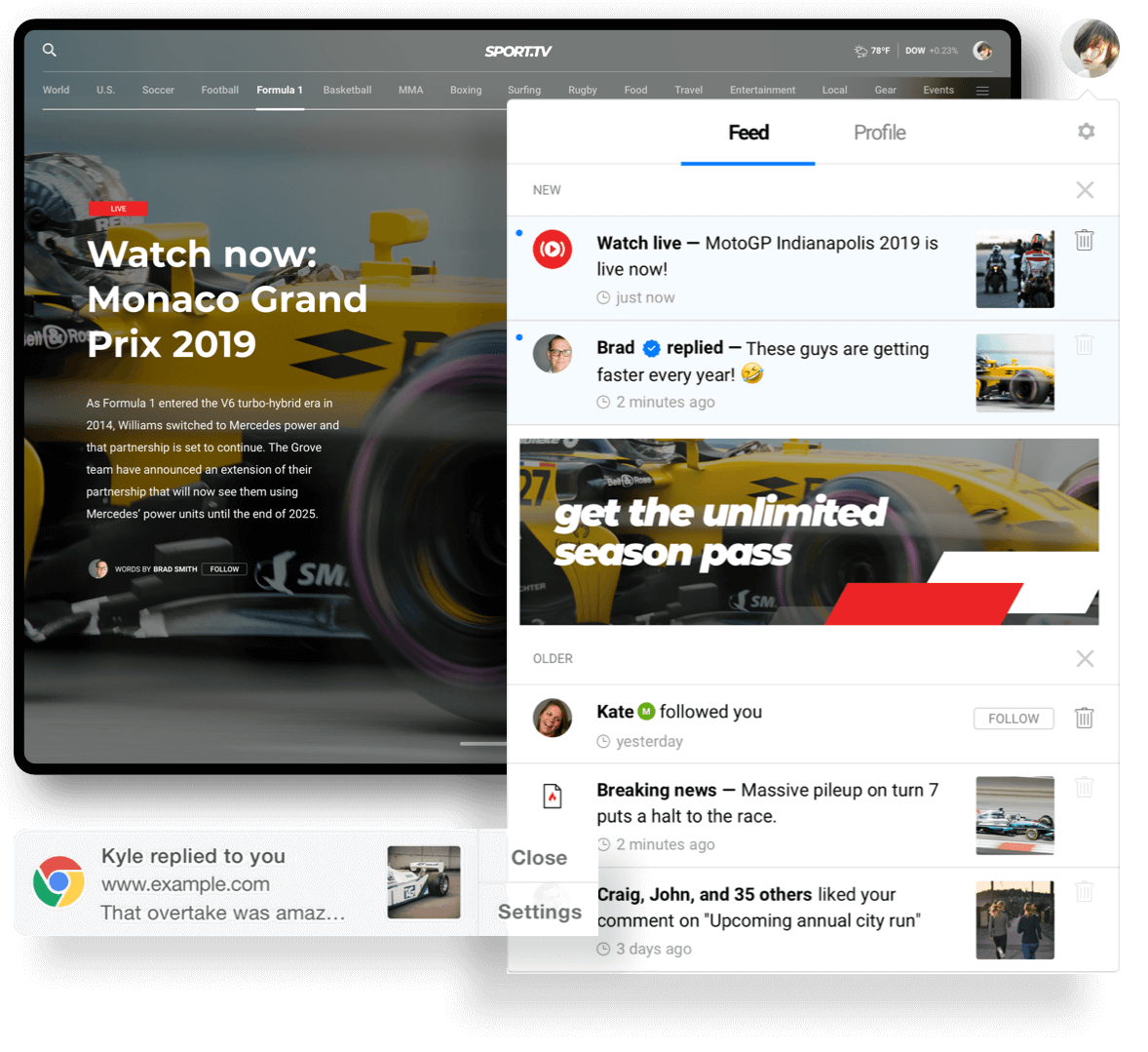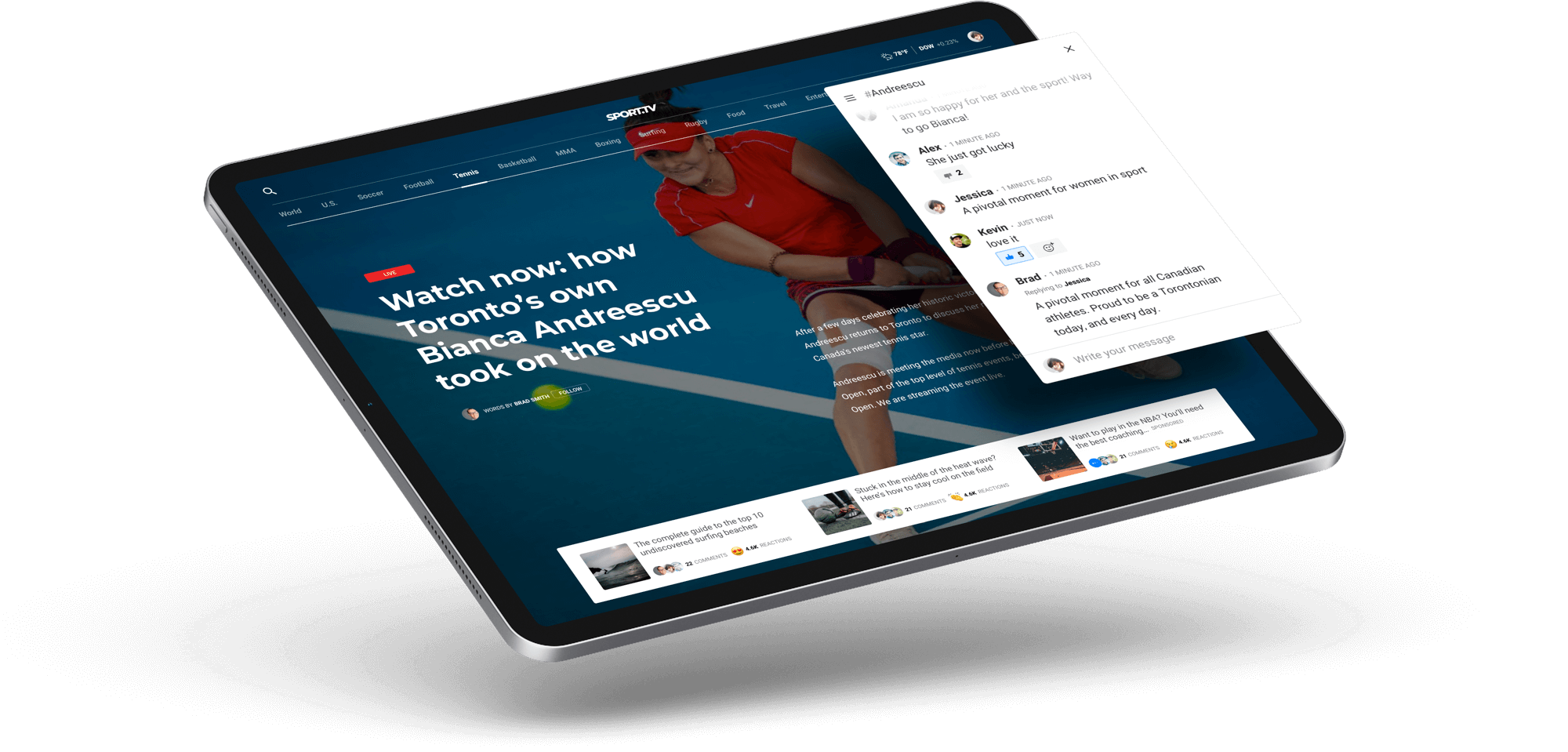Just last week, Adam Hodgkins, the senior business development manager at Genius Sports Media, published an insightful article that dug into why audience engagement data on-site is the key to growing revenue in sports. And we couldn’t agree more.
“There’s an awareness in the OTT space that sports companies have lost control of their audiences to social media,” says Michael Shewchenko, Head of Business Development for Sports and Media at Viafoura. “But they now have an opportunity to engage their audiences on their properties in a positive and highly valuable way, and use their own data to put a name and a face to their users.”
Audience engagement data is the money-making factor that many sports companies are missing out on. Any sports company that wants to significantly boost revenue would, therefore, benefit greatly from connecting with their audiences, learning who their community members are, and then using that information to create and send highly relevant content and ads.

Unlocking a Premium Experience for Sports Fans
To connect with audiences on a more direct level, sports companies need to turn their digital properties into engaging communities — through super-exclusive spaces that capture valuable insights on users. This can be accomplished through ‘premium experiences’ that can be offered to encourage users to register or subscribe.
“Engagement tools can open up the premium experience,” says Shewchenko. “Tools that encourage on-site interaction increase the likelihood of passive sports consumers becoming active and highly engaged users. It’s all about building the two-way communication between users and brands.”
A premium experience can include anything from participating in live chats, real-time commenting and blogging to following favorite teams, players, authors, topics or getting regular updates.
In his article, Hodgkins explains that “unique behind the scenes footage, exclusive interviews and easy access to detailed statistics have handed sports leagues and teams a golden opportunity to turn their websites and social channels into valuable destinations for information-hungry fans.”
Techcrunch even conducted a recent survey, which found that 78% of industry experts believe that fan engagement tech will have the largest impact on live streaming and esports in the next year.
Sports fans are already excited about players and upcoming events — they’re practically itching to interact with one another and around related content. The more opportunities you give them to engage on your platform, the more data you’ll be able to gather on who they are and what kinds of content and experiences they like.
Not only can sports companies sell this consumer data to advertisers, but “by knowing that their audience are, say, mostly men aged between 18 and 25 who read about basketball on a daily basis, advertisers have a huge strategic advantage when choosing where to spend their budget,” says Hodgkins.

Targeting Content to Known Users
As sports companies learn who their audience members are and how they react to different types of content, they can create content and experiences that delight their communities. For instance, knowing which player is your community’s favorite can help you generate extremely high-performing, related content that your audience will devour and generate conversations around. Plus, the more engaging and relevant your platform is, the more likely your community is to grow.

By serving up a premium experience to fans, sports media is able to capture meaningful data, which can significantly improve conversion strategies, grow revenue and increase consumer loyalty.
Stop relying on third-party news aggregators and social media platforms to run your ads off of, and instead, become the primary destination for consumers.
Get to know your fans on your own properties. Give them the content and experiences they love. Then use their data to inform business strategies and grow revenue. It really is as simple as that.
Related: What We Can Learn From Pirate Sites
RELATED: Build Your Community of Sports Fans Now
RELATED: 13 Questions Every Publisher Should Ask a Potential Tech Partner

